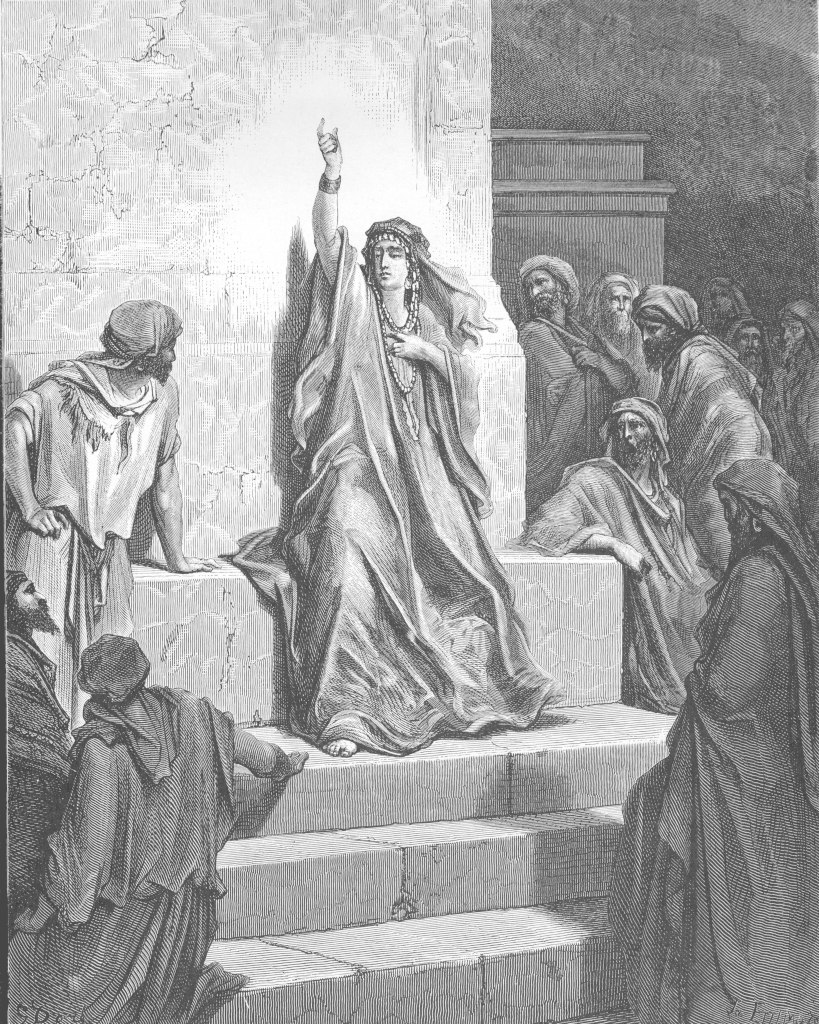Deborah's song of triumph by Gustave Doré, Judges 5, Bible.Gallery
Artwork Description

The artwork portrays a prominent female figure at the forefront, her hand raised in an expressive gesture, and her face ablaze with passion. Flanking her on either side are individuals who listen with keen interest and deep concentration. The artist's portrayal is not an exaggeration. In fact, the immense influence of the sole female judge mentioned in the Scriptures is beyond the realm of artistic exaggeration. Her role was exceptionally unique; she held the title of "prophetess," a role not assigned to any of the Judges prior to Samuel. Her position and impact transcended the traditional confines of women in her time. Elevated by the indwelling Spirit of God, she stood above her fellow countrymen.
Seated beneath the palm tree that bore her name – a central point between the lands of Benjamin and Ephraim – she served as the dispenser of judgment to the tribes who sought her wisdom. Her influence extended beyond internal matters and household disputes; she emerged as a leader in a critical national crisis. Her name shines among a league of remarkable women who, during moments of despair when men faltered, emerged to organize victory. Her spirit blazed like a torch, igniting the spirits of Israel's weary populace. As a conduit for divine inspiration, she became the rallying beacon for her compatriots, channeling her own moral strength into them. Thus, even when led by a woman, they were unafraid to confront a ruler who commanded a formidable force of nine hundred iron chariots.
In the realm of greatness, some women excel in words, while others in deeds. Deborah stood out in both realms. Her renowned Song of Deborah stands as a testament to her multifaceted brilliance. Composed at least eight centuries before Pindar, her song surpasses any other ode, ancient or modern, in its grandeur, fervor, and emotional resonance. Yet, it retains a harmonious symmetry and aesthetic appeal that would do justice to the most refined ages.
Invoking kings and princes as fitting witnesses to her recital, Deborah harkens back to past wonders:
"When You went out from Seir,
When You marched from the field of Edom,
The earth trembled, the heavens also poured.
Yes, the clouds dropped water.
The mountains quaked at the presence of the Lord,
Sinai itself, at the presence of the Lord, the God of Israel."